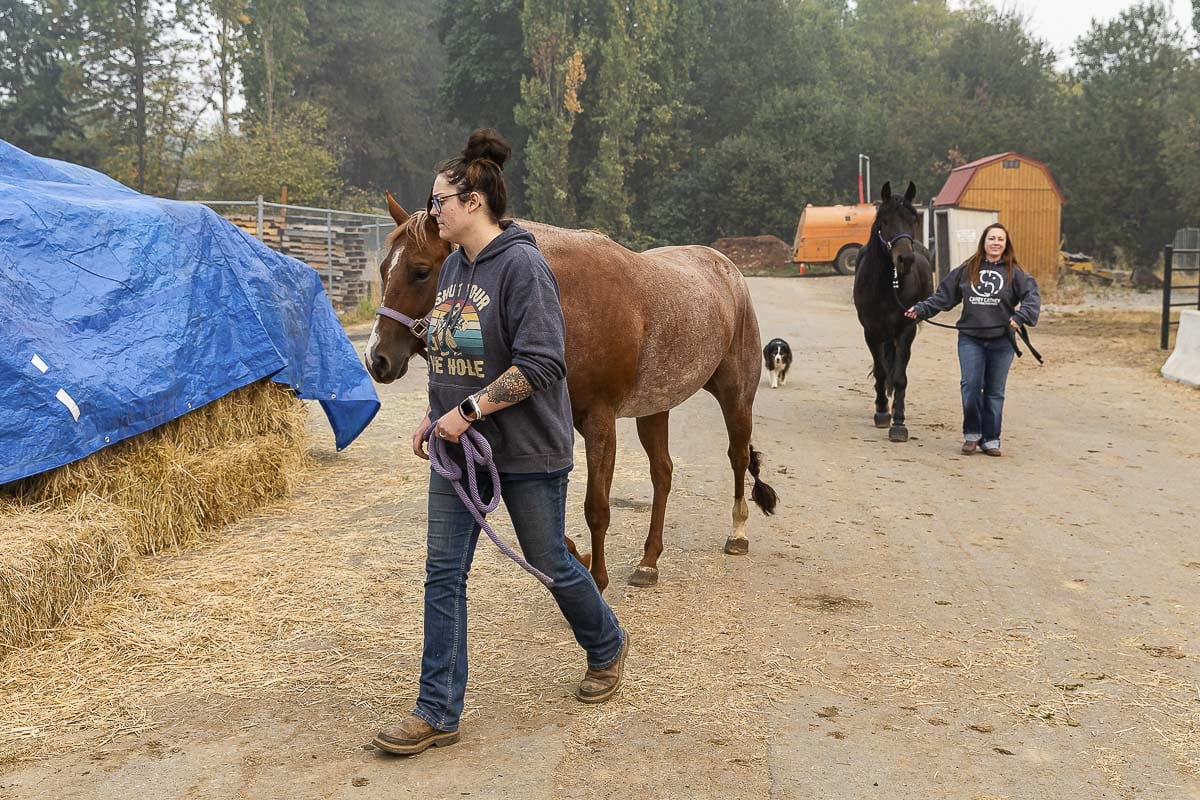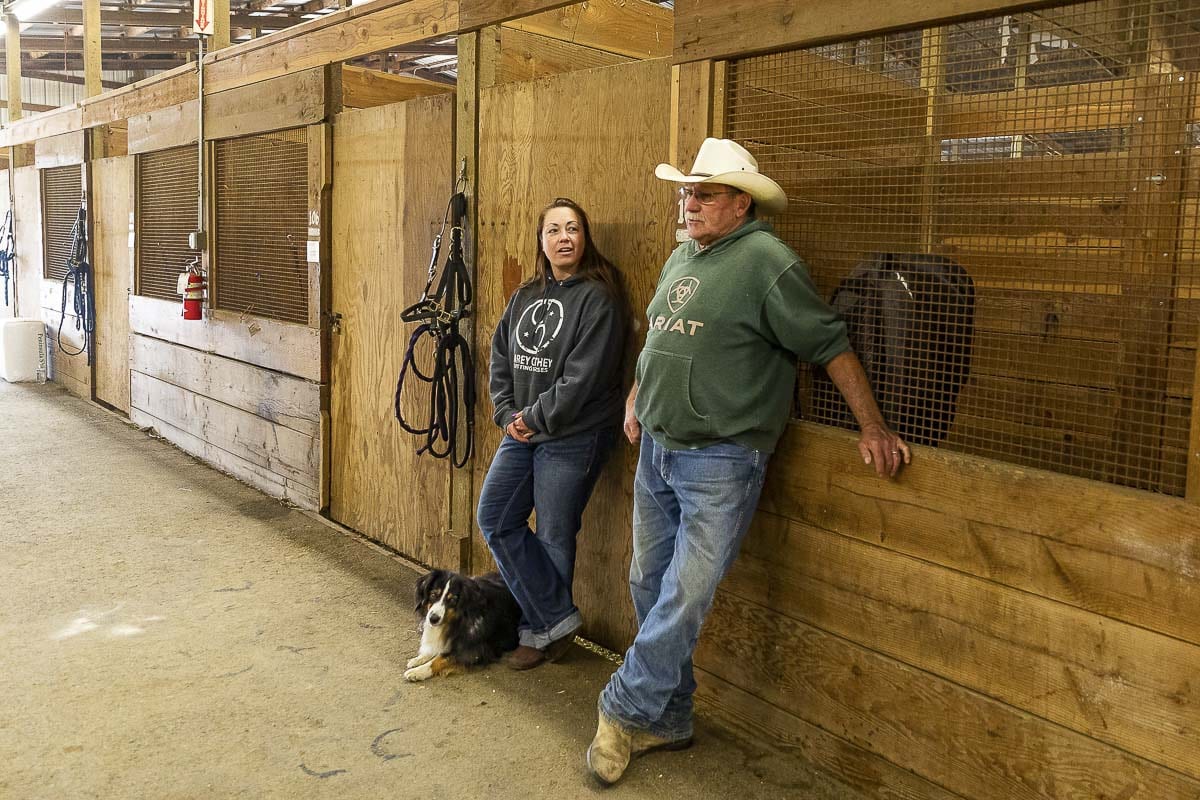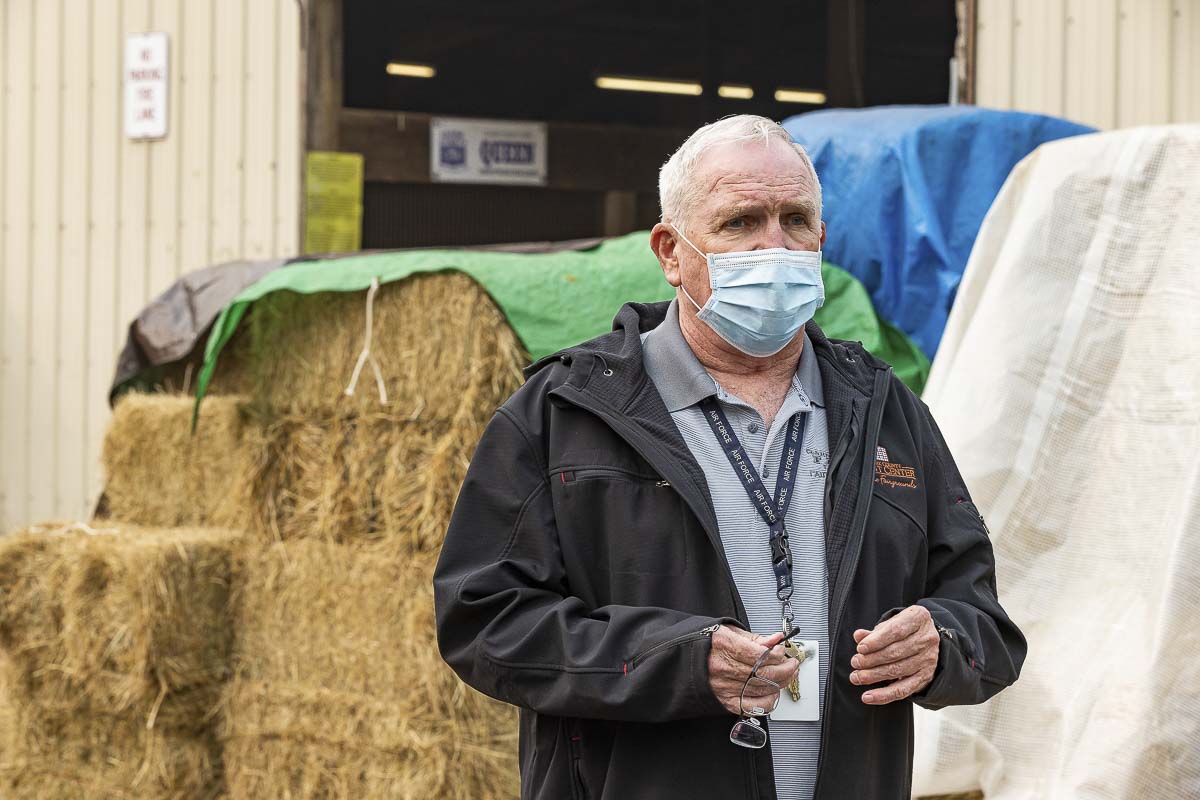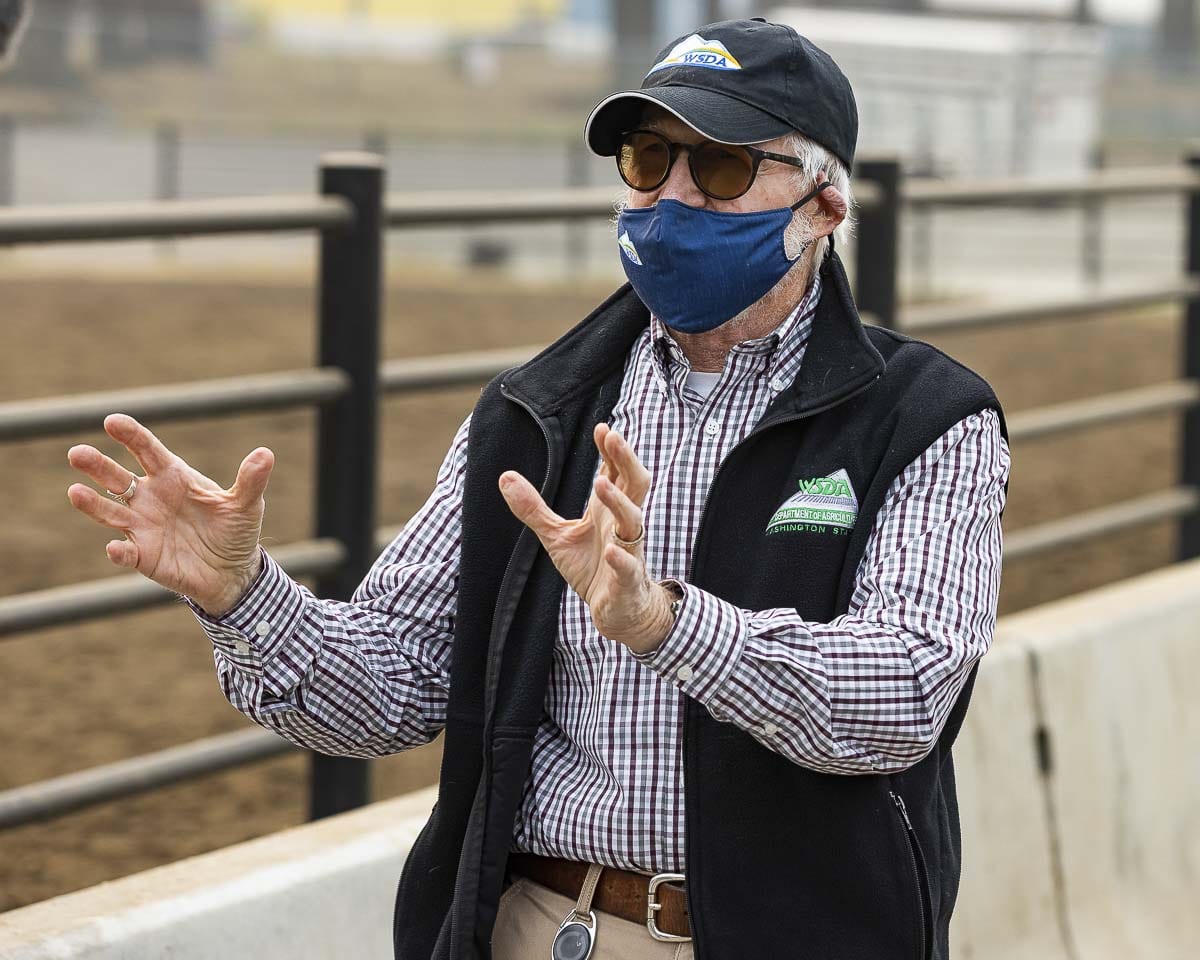More than 160 horses were temporarily housed at the fairgrounds after wildfires forced the evacuation of thousands in Oregon
RIDGEFIELD — First to arrive, last to leave.
Kati and JR Anderson can laugh about that now, but just over a week ago things seemed far more dire.
The couple, who run the aptly-named Soulmate Ranch in Estacada, Oregon, were among the thousands forced to flee as three major wildfires consumed tens of thousands of acres in Clackamas County.

Only for them, and hundreds of others like them, fleeing wasn’t as simple as packing their most precious belongings in a car and finding a hotel or a relative’s guest room while they waited to find out if they’d have a home to return to.
The Andersons board horses on their ranch, and late on Tuesday of last week they reached a level 2 evacuation warning, and decided to start packing up.

Seeking a place to go, Kati noticed a Facebook post saying the Clark County Fairgrounds were opening up their horse barns to help evacuees displaced by the fires.
So they loaded up their horses, along with several nearby farms, and headed north through the chaos into Clark County.
“We got here about one o’clock in the morning on Wednesday, and I had a scout vehicle that didn’t have a trailer come and check the place out,” Anderson said this week, “And she came back and said, ‘It’s all closed. All the gates are locked. There’s no horses there.’”
Parked next to the Chevron gas station along I-5 at 179th Street, the group began making a flurry of phone calls.
“Somehow Alice (Heller) with the Clark County Executive Horse Council got word that we had seven trailers sitting at that Chevron gas station over there, and 26 horses with no place to go,” says Kati.
Heller reached John Morrison, president and CEO of the Clark County Event Center, who woke up Director of Operations Jason Young, who drove from his home in Gresham with a key to unlock the gate.

By that time it was well after three in the morning, Morrison recalls.
“We literally made them the camp hosts, if you will,” he says. “I said, ‘I’m sure there’ll be other people coming up here. Here’s the keys to the gate. Here’s the keys to the stalls, just get them put away and get them safe.’”
By the time Morrison arrived back at the fairgrounds a few hours later, another farm had arrived with their horses, and more were on the way.
Setting up a place for evacuated livestock from another state isn’t just a matter of opening the gate and unlocking a stall.
Dr. Ric Torgerson, field veterinarian for District 2 with the Washington Department of Agriculture, says horses transported across state lines are usually required to undergo what’s known as the Coggins test, to check for antibodies to equine diseases.

“We were originally thinking about putting a hold on the animals that came in initially,” Torgerson says, but after talking with the state veterinarians in Oregon and Washington, they issued an emergency waiver of the Coggins rule and implemented a plan to keep animals from different farms separated.
“That way we weren’t worried about the paperwork, and the certified veterinary inspections and the testing requirements to import an animal in the state,” Torgerson explains. “So with that relief for people coming up here, they were able to come across the border.”
Horses from each farm were grouped together, with at least one full stall in-between different groups. They were also walked separately in either the indoor or outdoor arenas, and cared for only by the people who brought them.
“It was a great thing in a very sad situation,” says Dr. Torgerson. “And I think that the credit really goes to John and his team for putting it together well.”
The Andersons agree.
“They have just been absolutely great,” says Kati. “Fantastic. I mean, I can’t sing their praises enough. So easy to work with, so accommodating.”
Despite the stress of people waiting to hear whether their homes were still standing, the couple says there was “laughter every day” in the corridors of the stables.
“People formed new friendships with different ranches,” Kati says, “Where you wouldn’t have the different disciplines intermixing like you did here.”
Equestrian community steps up
More compelling even than the new friendships, the Andersons say, was the generous spirit of the Clark County equestrian community.
Outside the stables were stacks of hay and bales of pine shavings, donated by Pioneer Feed Co. from Ridgefield and Wilco Farm Stores in Battle Ground. Area restaurants brought full meals to feed the human evacuees too. Others brought snacks, drinks, and supplies.
“It’s been touching, really,” says JR. “I mean, I even had tears.”
JR does not look like the kind of man who tears up very often.
“The tears that I had while I was here wasn’t for the situation that we were in,” says Kati. “The tears that I had every time were tears of appreciation. I couldn’t believe what people were doing, how kind they were.”
Morrison says area 4H club members showed up every morning around 7 a.m. to help clean out stalls and make sure everything was kept organized.
“It almost looked like the Clark County Fair was on again,” Morrison says, “Where kids want to have the stalls clean, the aisles clean, everything looking good. They helped out a lot.”
So did the Andersons, who were the first to arrive, and likely will be the last to leave. They are hoping to head home Friday morning, assuming possible thunderstorms in the area don’t spark more fires overnight.
“I think John is kind of expecting us to stay and make sure everything gets cleaned up,” Kati says, laughing.
“I told him it would be cleaner than when we got here,” JR adds seriously. “It’s a give-give situation. They’re giving to us, so we’re gonna give back. Everybody’s giving back.”
“What they did was pretty astronomical,” adds Kati. “I want to make sure that they understand that we appreciate it.”




